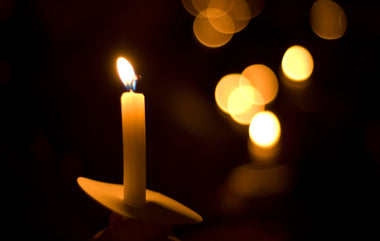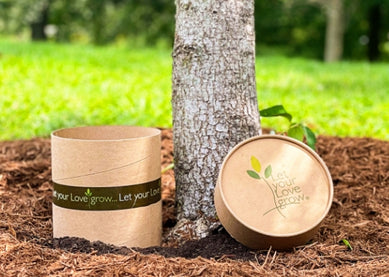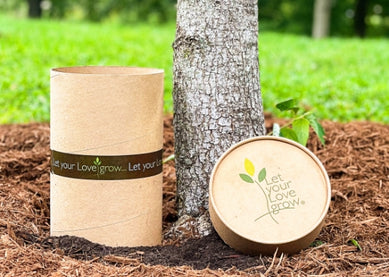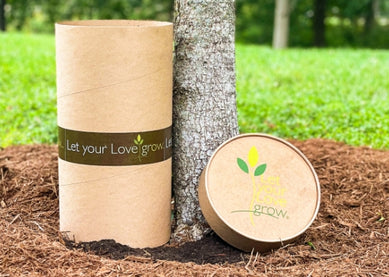Turning Memories Into Meaning: The Role of Reflection in Personal Growth and Grief
Grief is a profound and deeply personal experience, touching each of us in unique ways. While the pain of losing a loved one can feel eternal, reflection serves as a powerful tool in navigating loss.
Memories, keepsakes, and personal rituals offer comfort, providing a bridge between the past and present. By embracing remembrance, we can foster healing, personal growth, and an enduring sense of connection to those we have lost.
Reflection is not just about remembering but about integrating those memories into our present lives in ways that bring peace and reassurance. By revisiting the past with a sense of purpose, we gain strength, wisdom, and a renewed appreciation for the time we shared with those we have lost.
Let’s dive into the emotional and psychological benefits of reflecting on cherished moments and practical ways to honor the past while moving forward, allowing grief to transform into a meaningful, healing journey.
The Power of Positive Reflection
Revisiting happy memories is crucial to emotional healing. When we reflect on the joy, love, and warmth we share with a loved one, we reinforce the positive aspects of their presence in our lives.
Never discount the power of reflecting on positive memories, as looking back on cherished moments can shift our perspective, transform grief into gratitude, and strengthen our ability to cope with loss.
Through storytelling, sharing memories with family and friends, or even journaling, we keep the essence of our loved ones alive. Writing down cherished experiences helps us process grief and allows us to celebrate the impact they had on our lives.
Shift your focus from loss to appreciation to cultivate a sense of gratitude for the time spent together. Additionally, revisit old photographs, listen to recorded messages, or engage in creative projects inspired by their legacy to get further comfort and a renewed sense of purpose in honoring their memory.
Preserving Meaningful Keepsakes
Objects tied to our loved ones often carry deep sentimental value. Heirlooms and keepsakes act as tangible connections to the past, preserving memories across generations.
Whether it’s a cherished piece of jewelry, a handwritten letter, or a well-loved book, these items offer comfort and continuity in your grief journey. Holding or using these keepsakes can evoke a sense of closeness, making it feel as though your loved ones are still present in your daily life.
Family heirlooms can be powerful reminders of family history and tradition. The practice of passing down meaningful possessions strengthens generational ties and creates lasting bonds.
To honor a loved one, consider integrating keepsakes into daily life. Wear a piece of their jewelry, display their favorite artwork, or repurpose their belongings into something new and meaningful.
Additionally, create a dedicated space in the home to showcase special mementos to serve as a comforting reminder of their enduring influence and presence.
Discussing Legacy and End-of-Life Wishes
Open discussions about end-of-life wishes can bring clarity and peace of mind for both the departed and those left behind.
While these discussions may be difficult, they allow one to honor one’s values and ensure that one's wishes are respected. They also provide an opportunity for loved ones to express their hopes and desires, making it easier for family members to uphold their legacy with confidence and understanding.
Whether through ethical wills, estate planning, or simply talking about how they’d like to be remembered, these conversations foster understanding and emotional preparedness.
Encouraging open discussions about the values and traditions a loved one wants to pass down can also help families navigate the grieving process with a deeper sense of connection and purpose.
When you’re ready to have these discussions, approach them with compassion and sensitivity. Encourage open dialogue and emphasize the importance of legacy, not just in terms of assets but also in values, traditions, and memories that should be passed on.
Having this conversation with openness can create a space where love and understanding flourish.
Honoring Loved Ones Through Personal Rituals
One of the best ways to find comfort during this difficult time is to do something to remember your loved one. Journaling, lighting a candle, planting a memorial garden, or continuing traditions they cherished are all meaningful ways to keep their spirit alive.
Consider participating in charitable activities or community events that honor their passions, as these can be deeply fulfilling ways to commemorate their life and the values, they held dear.
Engaging in creative expressions such as writing letters to them, creating a scrapbook, or celebrating their birthday in a unique way can also provide healing and a sense of closeness.
Allow your rituals to evolve over time. Initially, they may focus on grief and remembrance, but as healing progresses, they can transform into celebrations of life, highlighting the love and lessons shared.
Over time, these rituals can serve as moments of joy rather than sorrow, reinforcing the positive impact our loved ones had and allowing their spirit to live on through the ways we honor them.
Conclusion
Grief is not about forgetting; it is about finding ways to hold on while moving forward. Reflection transforms sorrow into an avenue for healing and growth, allowing us to cherish our loved ones in ways that bring comfort and strength.
Whether through keepsakes, storytelling, or personal rituals, we keep their presence woven into our lives. Acknowledging grief while embracing cherished memories ensures that our loved ones remain an integral part of our journey.
As we embrace both the pain and beauty of remembrance, we honor those we have lost and the love that continues to shape us. We reaffirm the unbreakable bond we share with those who have passed, ensuring their memory remains an inspiring and guiding force in our lives.









